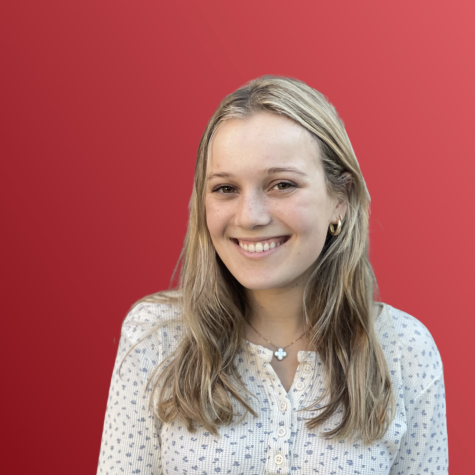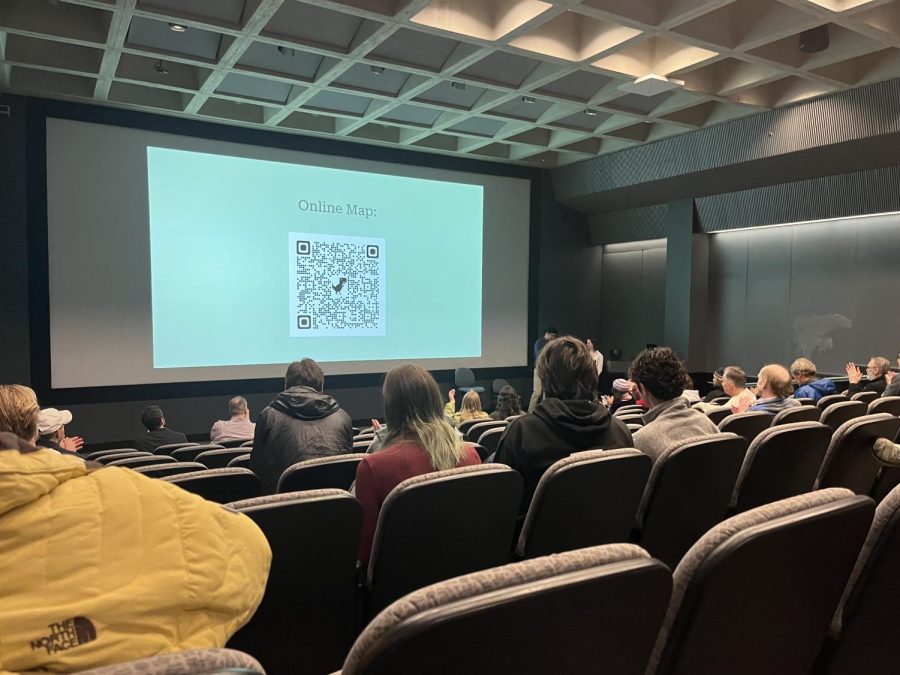ENST Hosts Brown Bag Series on Student Summer Research
The Environmental Studies Program (ENST) hosted its weekly ENST Brown Bag series on Friday, Feb. 17, showcasing four students’ summer 2022 research projects. The event was held in Golden Auditorium and put on by Assistant Director of Sustainability, Julia Sparks and Director of Environmental Studies Program, Chris Henke. Sparks reached out to students in the fall asking if they would be interested in presenting their work, according to senior Sophie Schadler, who participated in the project.
Student research ranged from “covering the mapping of Colgate’s landholdings, the comparison of organic agriculture practices, and the geotagging information along the Snake River in Idaho,” according to the University website. Each student presented their work for about 15–20 minutes followed by a short Q&A at the end of each presentation.
Junior Tingkuan Hsieh and Schadler presented their work and the process of creating a digital map of Colgate’s landholdings with ArcGIS. The main objective was to create a final web map and final map series that the Buildings and Grounds Department could use.
“Last summer Tingkuan and I worked for the geography department as student researchers,” Schadler said. “We put together a digital map of Colgate using GIS that shows the extent of the property Colgate owns in Madison and Franklin Counties, as well as land cover data for Colgate’s property, which is basically how many acres of woods, lawn, paved roads, etc.”
Hsieh and Schadler documented their research process and objectives via a slideshow presentation, showing the progression of their mapping.
“It was really fun to present our research and show people what we had been working on all summer,” Schadler said. “The purpose of our summer research was to produce a map of Colgate that is accessible to everyone — at the end of the presentation we put up a QR code for the map and it was cool to watch everyone pull up the map on their phones and explore it. I think the presentation went pretty well, it’s always hard to translate the technical jargon into a language that people understand, but I think people got the gist.”
Senior Will Krohn presented his work as a research intern at the Rodale Institute, a non-profit organization that supports research in organic farming. Krohn was looking to understand how to balance food production with agriculture’s impacts, specifically looking at weeds.
Senior Natalie Ringel, who attended the presentation, commented on her personal interest in Krohn’s research.
“As an intern in the Office of Sustainability, I am always eager to learn about new topics in ENST that I do not know much about,” Ringel said. “I have a personal interest in sustainable agriculture, so it was really exciting to hear about Will Krohn’s summer research project concerning the organic/no-till method of growing food.”
Senior Abigail Lewis was an intern at the Henry’s Fork Foundation in Ashton, Idaho, where she was working to catalog access sites — boat ramps and campsites — along the South Fork of the Snake River.
“This area has seen a major increase in tourists over the past few years, which has increased the risk of people going into endangered species areas and generally not knowing where they can and cannot go safely,” Lewis said. “Ultimately my goal was to visit each of these sites, catalog their location and key information relating to amenities and maintenance, and then make an extensive document and several detailed maps of the area for public use.”
Lewis presented her work alongside satellite photos of the access sites, explaining how she cataloged the sites by taking periodic trips down the river.
“I think the presentation went really well,” Lewis said. “I normally am very nervous presenting in front of a large group of people but I loved my experience this summer and found that since I lived it, it was much easier to talk about and walk the audience through my ten weeks in Idaho.”
So many topics fall under Environmental Studies and Sustainability that seeing students present their specific interests and research gives students the chance to learn more about their peers’ interests, according to Ringel.
“By attending these events, I have been able to see how environmental issues are tied to all aspects of life, which reaffirms why it is important to study and educate others about them,” Ringel said. “Also, going to the Brown Bags each Friday is a nice way to connect with the ENST community on campus.”

Sophie Mack is a senior from San Francisco, CA concentrating in art history and minoring in political science. She has previously served as a staff writer...











